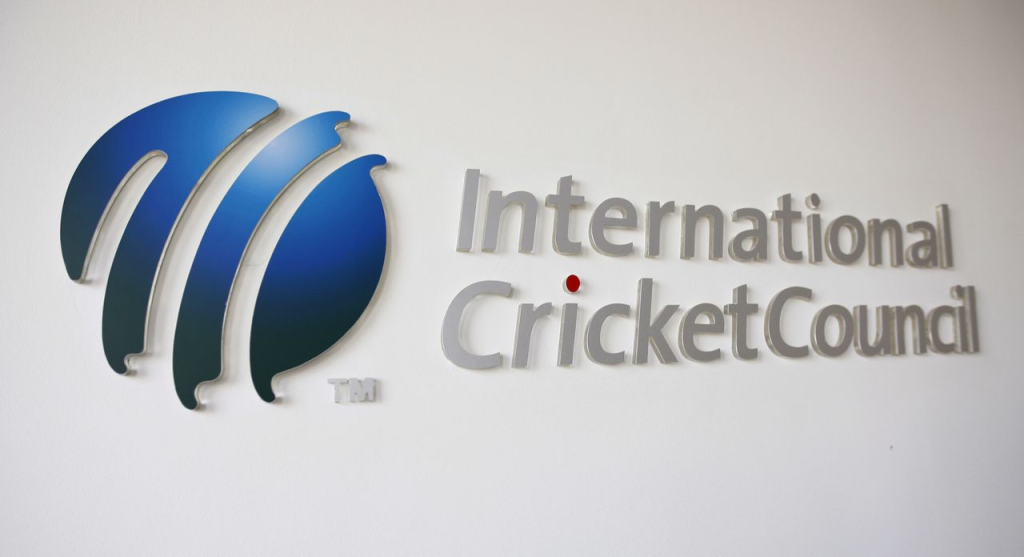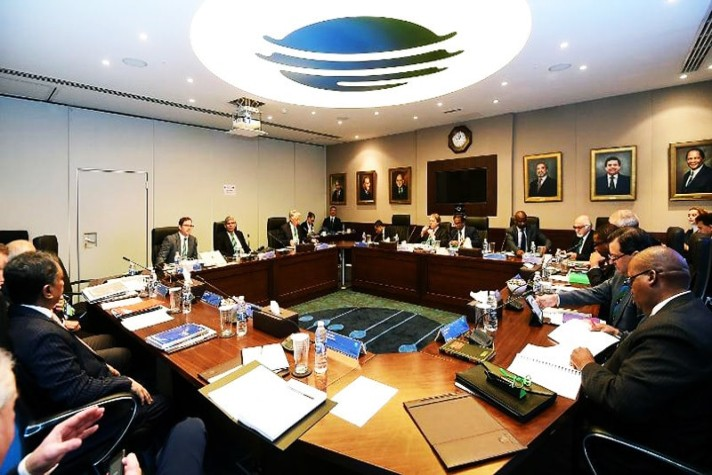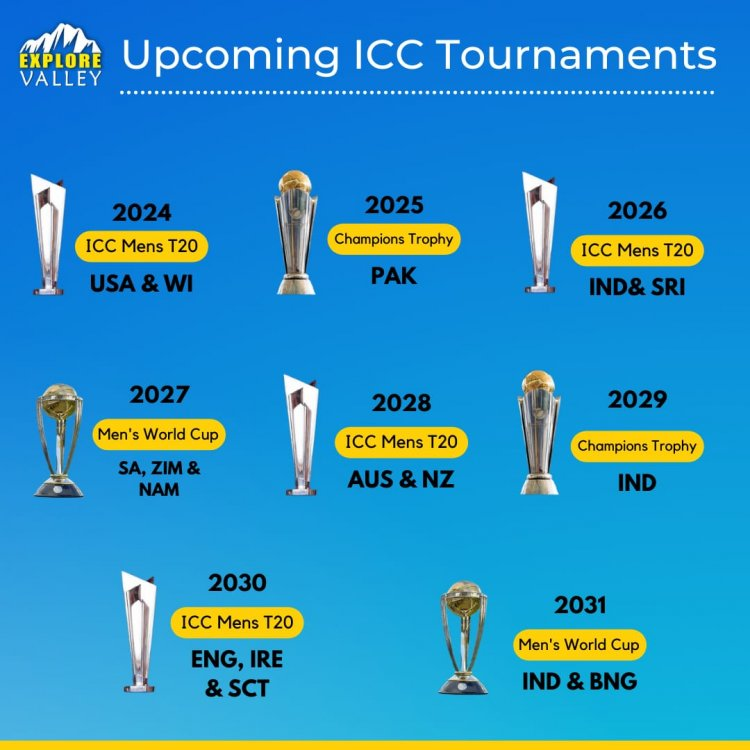Introduction

The International Cricket Council (ICC) remains the principal overseeing cricket group, arranging the game’s overall presence and cultivating its development since its origin in 1909. From its unassuming starting points to its ongoing situation as a worldwide peculiarity, the ICC has had a crucial impact on forming the cricket scene on an international scale. This article investigates the ICC’s diverse excursion, inspecting its tremendous achievements, key liabilities, significant competitions, challenges, and the perseverance through heritage it leaves on the game. Here we are talking about ICC: Exploring the Worldwide Cricketing Field.
Here we are talking about ICC: Exploring the Worldwide Cricketing Field:
The Beginning of the ICC

The underlying foundations of the ICC can be traced back to the mid-twentieth century when cricket was becoming prevalent across countries. In 1909, delegates from Britain, Australia, and South Africa gathered in London to lay out the Magnificent Cricket Meeting, determined to normalize rules and guidelines for international cricket matches between English Republic countries. Throughout the long term, the ICC developed into a worldwide overseeing body, embracing cricket-playing countries worldwide and growing its arrival past its Republic starting points.
Key Responsibilities of the ICC

The ICC’s essential obligations rotate around the administration and improvement of cricket worldwide. These obligations include:
- Setting and upholding the laws of cricket: The ICC is responsible for keeping up with the laws of cricket and guaranteeing consistency in understanding and utilizing rules across all game levels.
- Organizing international cricket occasions: The ICC supervises various international cricket competitions, including the ICC Cricket World Cup, ICC T20 World Cup, ICC Champions Prize, and different reciprocal series between countries.
- Advancing the development of cricket: The ICC is focused on extending the scope of cricket by fostering the game in contemporary cricketing countries, cultivating grassroots projects, and advancing orientation uniformity and variety inside the cricketing local area.
- Maintaining the soul of cricket: The ICC prioritizes sportsmanship, fair play, and honesty, endeavoring to uphold the highest moral guidelines on and off the field.
Significant Competitions Coordinated by the ICC

The ICC arranges a few marquee competitions that catch the creative minds of cricket fans worldwide. These include:
- ICC Cricket World Cup: The leading occasion of international cricket, the Cricket World Cup is held like clockwork and elements the top cricketing countries seeking the sought-after title of best on the planet. Since its origin in 1975, the Cricket World Cup has developed into one of the most-watched games, exhibiting the best cricketing ability and show on the field.
- ICC T20 World Cup: Presented in 2007, the ICC T20 World Cup is a biennial competition that exhibits the quick-moving and exciting organization of Twenty20 cricket. With its more limited span and hazardous ongoing interaction, the T20 World Cup has widened cricket’s enticement for new crowds and become a staple occasion in the cricketing schedule.
- ICC Champions Prize: The ICC Champions Prize is a lofty one-day international (ODI) cricket competition highlighting the world’s main eight ODI groups. Even though it was initially booked as a biennial occasion, the Bosses Prize has been held irregularly since its origin in 1998, with its latest release in 2017.
Difficulties and Discussions
Like any significant donning association, the ICC has experienced its reasonable part of difficulties and contentions throughout the long term. These include:
- Administration issues: The ICC has confronted analysis for its administration structure, for certain partners calling for more noteworthy straightforwardness, responsibility, and portrayal inside the association.
- Commercialization of the game: The developing commercialization of cricket has raised worries about the harmony between business interests and the government’s assistance of the game. Pundits contend that business contemplations might eclipse the trustworthiness and soul of cricket, prompting irreconcilable situations and moral quandaries.
- Imbalance in cricket: Abberations in assets, foundation, and unique open doors between cricket-playing countries have highlighted the need for more noteworthy value and inclusivity inside the game. The ICC has done whatever it may take to address these imbalances through drives aimed at advancing improvement in rising cricketing countries and growing the worldwide impression of the game.
The Tradition of the ICC
Despite its difficulties, the ICC abandons a rich heritage that has molded the cricket scene worldwide. Its job in advocating the game, putting together marquee competitions, and cultivating international participation has established cricket’s status as one of the world’s most cherished sports. Besides, the ICC’s obligation to advance the soul of cricket, exemplified by the upsides of sportsmanship, fair play, and honesty, fills in as a directing light for people in the future of cricketers and fans.
Looking Forward
As cricket advances in the 21st century, the ICC faces new opportunities and moves in its journey to maintain respectability and development. Emerging patterns like digitalization, globalization, and changing socioeconomics present potential opportunities and difficulties for cricket’s future. The ICC should adjust to these progressions while remaining consistent with its basic beliefs and standards, guaranteeing that cricket stays a game for all, paying little mind to identity, orientation, or foundation.
FAQs
What is the ICC?
The ICC, short for the International Cricket Council, is the governing body responsible for directing the organization, providing guidelines, and advancing cricket worldwide.
When was the ICC established?
The ICC’s origins date back to 1909, when it was established as the Royal Cricket Gathering. Over the years, it developed into the Worldwide Cricket Meeting in 1965 before formally becoming the International Cricket Council in 1989.
What are the central liabilities of the ICC?
The ICC’s essential obligations encompass different parts of cricket administration, including determining and executing cricket rules, organizing significant worldwide competitions, cultivating worldwide cricket advancement, and maintaining the ethos of fair play and sportsmanship.
How does the ICC guarantee adherence to cricket laws?
Guaranteeing uniform utilization of cricket regulations across all game levels is an urgent part of the ICC’s capability. The association teams up with part cricket sheets to administer and authorize the laws of cricket, occasionally surveying and refreshing them to reflect contemporary cricketing elements.
What are the noticeable competitions coordinated by the ICC?
The ICC organizes several renowned cricket competitions, including the ICC Cricket World Cup, ICC T20 World Cup, and ICC Ladies’ Cricket World Cup, which give stages to global cricket crews to contend at the highest level.
How habitually does the ICC Cricket World Cup take place?
The ICC Cricket World Cup is a quadrennial occasion that happens like clockwork. In it, driving cricketing countries compete for the regarded title of best on the planet in the game.
What recognizes the ICC T20 World Cup?
The ICC T20 World Cup, held biennially, showcases the elating Twenty20 cricket organization, which is prestigious for its speedy activity and dynamic ongoing interaction. Groups from around the world compete for the T20 cricket title.
What measures can nations use to fit the bill for ICC tournaments?
Cooperation in ICC competitions is predicated on a mix of variables, remembering execution for local qualifying competitions and rankings in light of ODI (One Day Worldwide) and T20 cricket.
How does the ICC add to cricket’s worldwide expansion?
The ICC is focused on encouraging cricket’s development worldwide by supporting grassroots improvement drives, helping rising cricketing countries, propelling ladies’ cricket, and putting resources into foundations and offices.
How does the ICC maintain respectability and decency in cricket?
The ICC’s principle is maintaining the standards of respectability and fair play. It utilizes different measures to combat match-fixing, heresy, and other unfortunate behavior inside the game, such as designating match authorities, laying out enemies of debasement units, and authorizing disciplinary techniques.
What steps are involved in turning into an ICC member?
Cricket sheets addressing perceived cricket-playing countries can apply for ICC participation and are likely to meet indicated models enveloping consistency with cricket guidelines and administration norms.
Which job does the ICC play in propelling ladies’ cricket?
Perceiving the meaning of ladies’ cricket, the ICC tries to advance its turn of events around the world. This incorporates arranging committed competitions, such as the ICC Ladies’ Cricket World Cup and ICC Ladies’ T20 World Cup, working with grassroots projects, and upholding expanded support and permeability of ladies in cricket.
Conclusion
The ICC’s process demonstrates the perseverance through the force of cricket to join individuals, rise above limits, and move ages. From its modest starting points as a pioneer organization to its ongoing status as a worldwide force to be reckoned with, the ICC has had a focal impact in forming the predetermination of cricket on the world stage. As cricket keeps on catching the hearts and psyches of millions all over the planet, the ICC stays unfaltering in its obligation to advance the soul of cricket and guarantee that the game will continue to flourish for a long time into the future.

